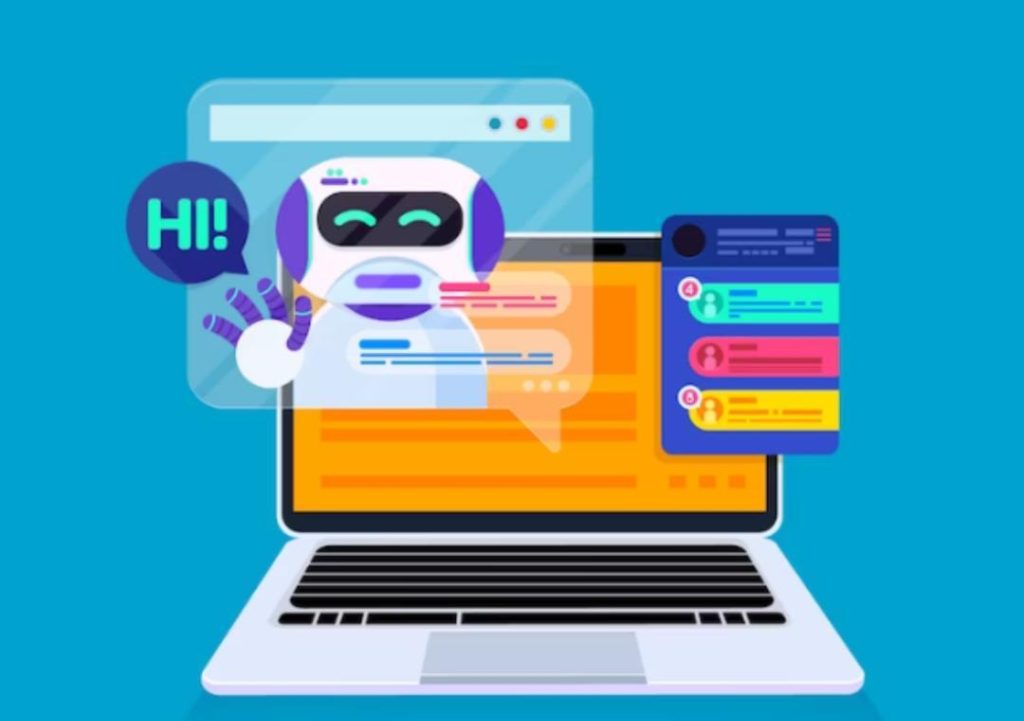
Virtual Assistants & Chatbots Power 24/7 eCommerce Support
In today’s fast-paced digital landscape, eCommerce businesses face unprecedented competition to deliver exceptional customer experiences. With consumers increasingly expecting instant gratification, providing 24/7 support has become a crucial factor in building brand loyalty and driving sales. AI-driven chatbots and virtual assistants have emerged as game-changers in this space, revolutionizing the way eCommerce companies handle customer inquiries and support requests.
The Rise of Chatbots in eCommerce
Chatbots, powered by natural language processing (NLP) and machine learning algorithms, have been around for a while. However, their capabilities have evolved significantly in recent years, making them an increasingly popular choice for eCommerce businesses. These AI-driven conversational agents can handle a wide range of tasks, from answering frequently asked questions (FAQs) to guiding customers through complex processes like returns and exchanges.
Benefits of Chatbots for eCommerce Businesses
So, what are the advantages of implementing chatbots in eCommerce? Here are a few key benefits:
- 24/7 Support: Chatbots can operate around the clock, providing instant support to customers without the need for human intervention. This means that customers can get answers to their questions, resolve issues, or simply chat with a brand whenever they need to, regardless of the time of day or night.
- Cost Savings: By automating routine tasks and reducing the volume of support tickets, chatbots can help eCommerce businesses save time and money. Human customer support agents can focus on more complex issues, freeing up resources for more strategic tasks.
- Increased Efficiency: Chatbots can process multiple conversations simultaneously, providing faster response times and more efficient resolution of issues. This leads to higher customer satisfaction ratings and reduced wait times.
- Personalization: Advanced NLP capabilities allow chatbots to understand customer preferences, behavior, and purchasing history, enabling personalized recommendations and targeted marketing efforts.
- Data Insights: Chatbots can collect valuable data on customer interactions, providing insights into pain points, common issues, and areas for improvement.
How Chatbots Work
So, how do chatbots actually work? Here’s a simplified overview:
- User Input: A customer initiates a conversation with a chatbot by sending a message or asking a question.
- NLP Processing: The chatbot’s NLP algorithm analyzes the customer’s input, identifying the intent behind the message (e.g., “I need help with a return”).
- Response Generation: The chatbot generates a response based on its training data and algorithms, which may include answering the customer’s question, providing a solution, or routing the conversation to a human agent.
- Sentiment Analysis: The chatbot analyzes the customer’s tone, urgency, and context, enabling it to respond in a more empathetic and human-like manner.
- Continuous Improvement: The chatbot learns from each interaction, refining its responses and improving the overall customer experience over time.
Case Studies and Examples
Several eCommerce businesses have successfully implemented chatbots to enhance their customer support experiences. Here are a few notable examples:
- Zappos: The online shoe retailer uses chatbots to handle customer inquiries, with a reported 30% reduction in support tickets and a 25% increase in customer satisfaction.
- Lowe’s: The home improvement retailer has implemented a chatbot-powered support system, which has reduced average handle time by 30% and improved customer satisfaction ratings by 15%.
- Converse: The fashion brand uses chatbots to provide personalized product recommendations, with a reported 20% increase in sales and a 15% reduction in support tickets.
The Future of Chatbots in eCommerce
As AI technology continues to evolve, we can expect to see chatbots become even more sophisticated and integrated into eCommerce businesses. Here are a few potential developments on the horizon:
- Multi-Channel Support: Chatbots will become more versatile, handling support requests across multiple channels (e.g., SMS, voice assistants, and social media).
- Emotional Intelligence: Chatbots will develop emotional intelligence, enabling them to better understand and respond to customer emotions, such as empathy and frustration.
- Proactive Support: Chatbots will become more proactive, anticipating customer needs and offering personalized recommendations and solutions before customers even ask.
Conclusion
In conclusion, AI-driven chatbots and virtual assistants are revolutionizing the way eCommerce businesses provide customer support. By automating routine tasks, reducing support tickets, and improving response times, chatbots are helping businesses deliver faster, more accurate, and more personalized support experiences. As these technologies continue to evolve, we can expect to see even greater benefits for eCommerce businesses and their customers.






